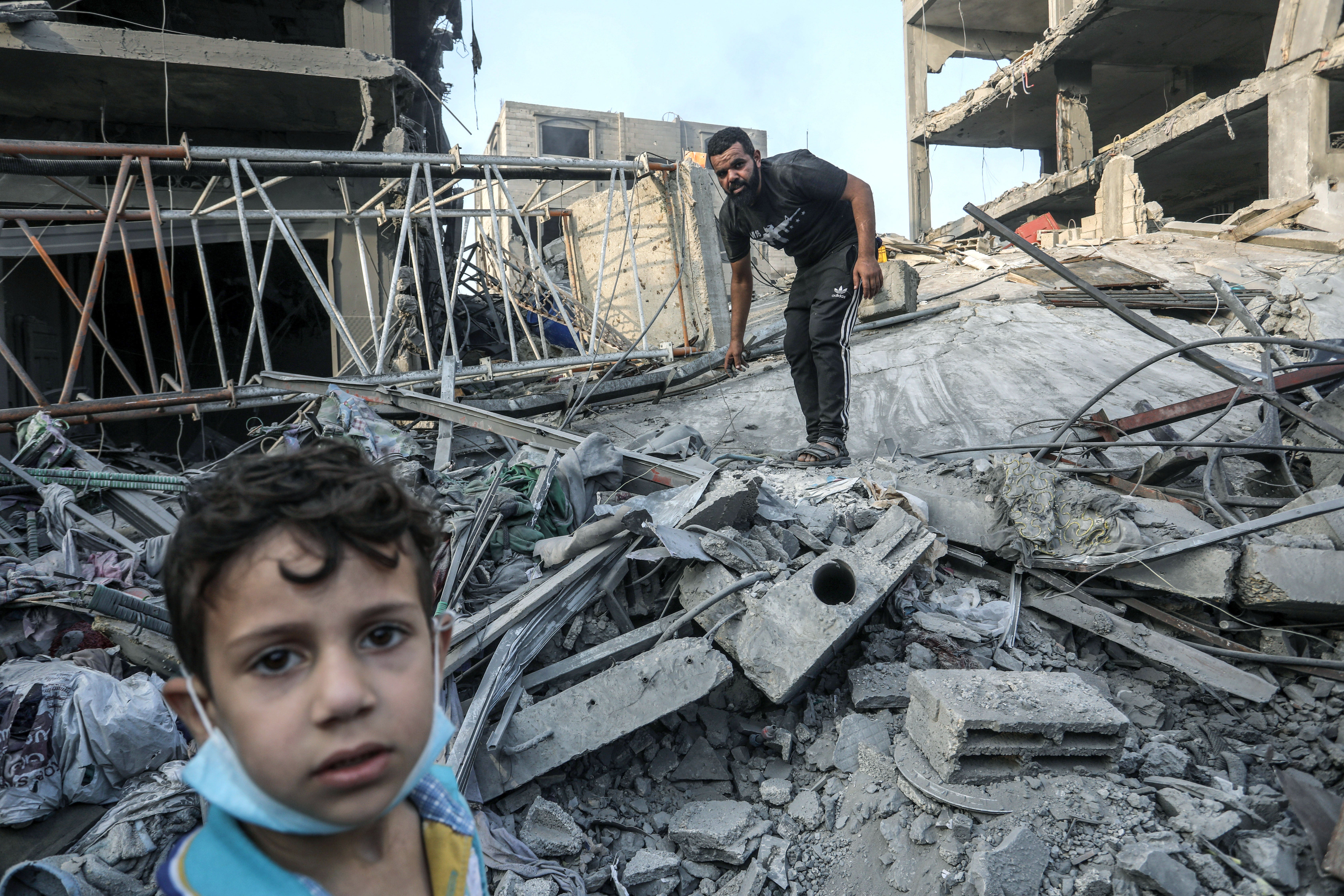By refusing a temporary ceasefire, Israel risks alienating its allies
Editorial: Notwithstanding the intense pressure Israel is under to guarantee the security of its people, it must find a way to allow more aid and fuel into Gaza

The grim warning by the United Nations that it will soon have to end its vital humanitarian work in Gaza due to Israel’s blockade should be taken very seriously. There is now an overwhelming case for a pause in the war on humanitarian grounds to allow in food, medicines and, crucially, fuel to prevent the lives of more innocent people in Gaza from being lost.
According to the UN, more than a third of hospitals in Gaza and nearly two-thirds of primary health clinics have shut down due to damage or lack of fuel. The UN says some 1.4 million people are homeless.
Israel should bow to growing international pressure, including from the US and UK governments, for such a pause. Understandably, the Israeli government does not want fuel to end up in the hands of Hamas; it claims the terrorist group has stockpiled supplies sent in previously. Israel will view a temporary “lull”, as the US secretary of state Antony Blinken called it, as a slippery slope that would inevitably be followed by calls for a permanent ceasefire. Indeed, in the UK that is the goal of the 83 MPs, mainly from Labour and the Scottish National Party, who have signed a Commons motion calling for “an immediate de-escalation and cessation of hostilities”.
Their call is not supported by Conservative ministers or their Labour counterparts. The frontbench consensus is right: a formal cessation would infringe Israel’s right under international law to defend itself in the wake of the horrific 7 October attack on the country.
However, Israel is in danger of forfeiting the strong support and sympathy it enjoyed from much of the world in the wake of the incursion. The passage of time is not Benjamin Netanyahu’s friend as he faces an agonising dilemma over whether to begin a ground invasion of Gaza while there is still hope that more of the 216 remaining hostages will be released, as Hamas plays a cynical psychological game. Israel’s bombardment of Gaza appears to be getting more intense: the Hamas-controlled health ministry claims that Tuesday was the deadliest day since the war began, with 750 Palestinians killed, including 340 children, and that a total of 6,500 have now died.
In a petulant act, the Israeli government denied a visa to Martin Griffiths, the UN’s highly respected under-secretary-general for humanitarian affairs. The aim, Israel declared, is to “teach them a lesson” after Antonio Guterres, the UN secretary-general, said Hamas’s attacks did not happen “in a vacuum” and it was “important to recognise” Palestinians had been subject to 56 years of “suffocating occupation”.
Israel chose to ignore the fact that Mr Guterres also said the grievances of the Palestinian people cannot justify “the horrifying and unprecedented acts of terror” inflicted on Israel. He called for the hostages to be released, but also claimed Israel had committed “clear violations of international humanitarian law” in Gaza since the Hamas incursion.
Israel was quick to call for his resignation over what it called his “shocking” and “horrible” remarks. Eli Cohen, the foreign minister, cancelled a scheduled meeting with him.
Mr Guterres’s resignation is not going to happen. There is a long history of tension between Israel and the UN, which it accuses of bias. Mr Guterres, while looking at the crisis through both ends of the telescope, could have chosen his scripted words more carefully. The focus of the UN – indeed of everybody – should be on the humanitarian catastrophe in Gaza rather than political point-scoring, and anything which distracts attention from the need to ease the desperate plight of the Palestinian people should be avoided.
Notwithstanding the intense pressure Israel is under to guarantee the security of its people, it must find a way to allow more aid and fuel into Gaza. If Israel does not, it will find itself with fewer friends in the world at a time when it needs them.



Join our commenting forum
Join thought-provoking conversations, follow other Independent readers and see their replies
0Comments